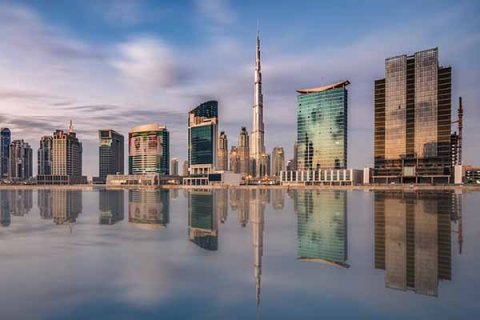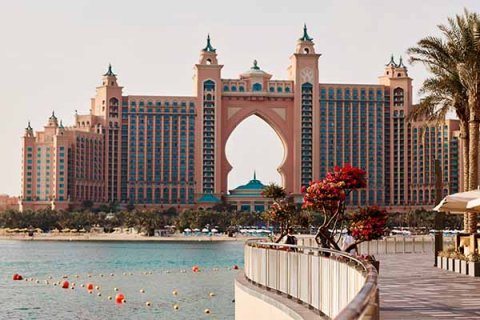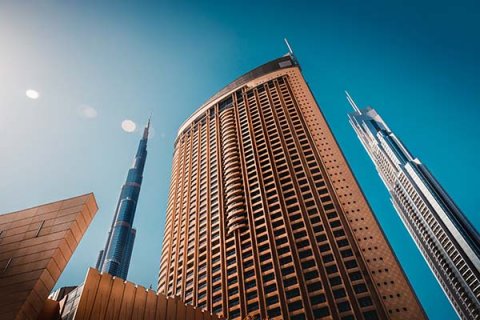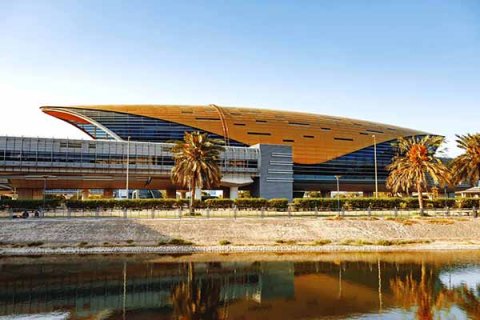The United Arab Emirates is among the most prosperous countries in the world. It is widely popular for its luxury way of living.
Dubai, the most progressive and technologically advanced of all the emirates, plays an important role in the UAE.
It’s not cheap to live there. This is due to a combination of factors including exemplary quality of real estate, high salaries, education, healthcare and much more. All this attracts thousands of tourists and expats.
We’ll tell you more about the cost of living in Dubai, UAE, and other important benefits for expats below.
Contents
- Cost of living in the UAE
- Housing and utility bills
- Food and clothing
- Transport and communications
- We’ll help you buy the best home in Dubai
Cost of living in the UAE
Dubai is the UAE’s major financial hub and one of the most expensive cities in the world. According to statistics, foreign citizens account for 88% of the emirate’s population in 2021. Over 2 million migrants live here permanently.
Despite the overall high cost of living in the city, there is a high level of healthcare, safety, as well as decent wages (even in low-skilled jobs). Moreover, there are no taxes on profits, meaning that residents can freely dispose of their income.
The monthly salary level of $1,600 - $2,000 is considered low in Dubai. It is paid to low-skilled workers. The average monthly income ranges from $3,500 to $4,000. A salary above $8,500 is considered high even in comparison with Western Europe. There are even specialists whose monthly salary exceeds $75,000.
Another great incentive for foreigners who are looking to develop their career in the UAE is a 10-year residence visa program extended by the government in December 2020. Before that, only scientists accredited by the Emirates Scientists Council. Now a log-term visa can be given to:
- PhD graduates;
- Talented doctors and programmers;
- Engineers;
- IT specialists;
- Graduates with excellent grades;
- Investors who invest at least AED 10 million in the UAE.
Housing and utility bills
The UAE has a wide range of ready and off-plan housing options. Among existing and new homes, there are inexpensive apartments in Dubai and upscale properties, which include luxury apartments, duplexes, townhouses, villas, and much more. The average square meter is $2,500. You can buy a comfy studio in a residential project for $75,000 - $150,000. Prices vary depending on location, floor, and amenities.
Buying an apartment
Below are the most popular residential areas in Dubai and prices per square meter.
- Downtown Dubai - $4,000
- Dubai Marina - $4,500
- Palm Jumeirah - $5,000
- Burj Khalifa - $6,000
Renting a property
Renting apartments and villas is the most popular option. The average monthly rent for an unfurnished studio in Dubai is $1,200. In the high-end areas, the price tag is much higher, in the range between $2,500 to $3,000.
The cheapest options can be found in the Deira area, where mainly labor migrants live. The rental cost of such a property with basic amenities is $400.
In neighboring emirates, the rent is $650 - $800. For this amount, you can find a modest apartment within walking distance to the beach.
Utility bills payment
Utility costs in Dubai are reasonably high because the city is located in the desert, therefore, home maintenance is very expensive. This is especially true for water and electricity.
In the period of unbearable heat, utility and maintenance services costs exceed $1,000 per month. On top of this, non-residents are required to pay separately about 5% of the property value for maintenance of the building and the surrounding area.
Electricity, water, fuel surcharge and sewerage fees are charged separately based on meter readings, totaling about $75 monthly. Air conditioning is also paid separately.
In comparison with other countries, Dubai basic home internet packages start at an astronomical amount of $100 monthly.
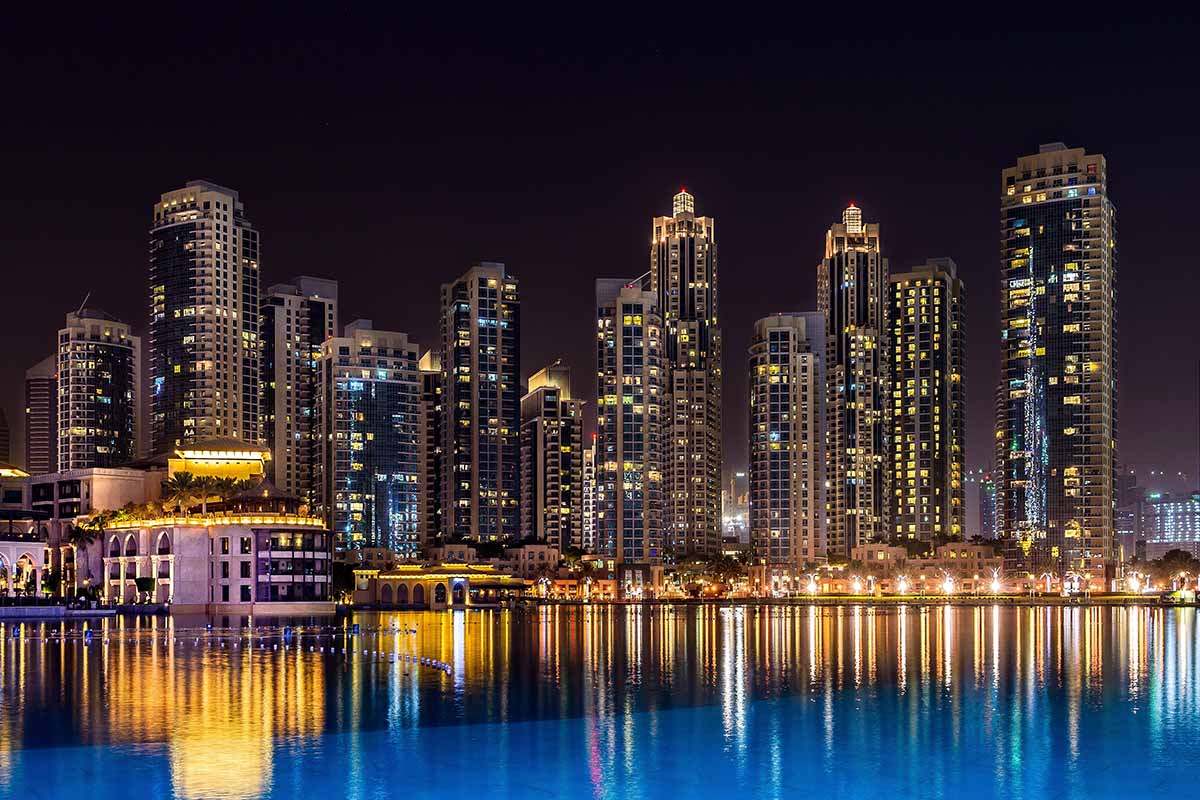
Food and clothing
Like any popular tourism destination, Dubai has ordinary food retailers and supermarkets for tourists. In general, they sell the same groceries, which cannot be said about the prices. The cheapest groceries shops are located in the remote areas of the city. The closer a shop to the city center, the higher prices it has. Thus, in the central parts of the emirate, grocery prices can be 2 or 3 times higher.
Average prices:
- milk - $0.8
- bread - $1
- potatoes - $1.2
- butter - $3.8
- eggs - $2.7
- cheese - $10
- yogurt - $0.7
- chicken - $4
- meat - $8 -$9.5
- ice cream - $1.7
- cereals - $1 - $1.5
- fruits - $0.8 - $2.5
- vegetables - $1.6 - $2.5
In the UAE, there are also stores selling local groceries, where you can buy ready-to-eat meals like soups and baked foods for $0.4 - $1.2.
Fast food
There are many places for a tasty and quick bite to eat. With only certified fast-food takeaways on the streets of Dubai, you don't have to worry about the quality of the food you eat. As for the cost of meals, you can buy falafel or diner kebab in the emirate for $1.3 - $2.2, a lunch wrap price is $0.5 to $1 on average.
Popular fast-food restaurants such as McDonald’s and SubWay serve traditional food among other meals. The prices there are almost the same as in other countries, about $4.5- $6 for a combo meal. A large pizza costs $9.5 - $10.
The same food costs several times higher in shopping malls, starting at $16. The price of a burger is about $8, fresh juice price starts at $2.5.
Cafes and restaurants
If you want the exquisite and inexpensive food to eat, then visit Arab and Indian cafes. There you can enjoy the taste of aromatic coffee, the masala dosa and other meals for $1.5. Breakfast costs around $5 - $8. Fried chicken and a side dish in Deira costs about $4.
In the tourist center of Dubai and its surroundings, prices in restaurants and cafes are not limited. For example, a cup of coffee costs about $7 - $8, a ham sandwich - $8, for a dessert you need to pay $13.5, and a full meal costs about $100.
Your food costs would directly depend on your preferences. If you cook on your own and only occasionally go to a cafe, it will cost about $500 a month.
Clothing
Dubai has an incredibly developed culture of shopping centers and malls. The most popular and must-visit shopping malls in the emirate are The Dubai Mall, the Gold & Diamond Park, the Mall of the Emirates, Al Ghurair Centre, Al Bustan and others.
Shopping for clothes is most profitable in the Day to Day chain of stores, which is popular among locals. You can also visit the Karama market.
In large shopping centers with mass market stores, you can find clothing items for every taste and budget: jeans from $7-10, T-shirts and sweaters from $1-8, and others. Clothes with different price categories are sold on different floors.
There are big discounts of up to 70% during the Dubai Shopping Festival in January. In the month of Ramadan, there are also various discounts and promotions.
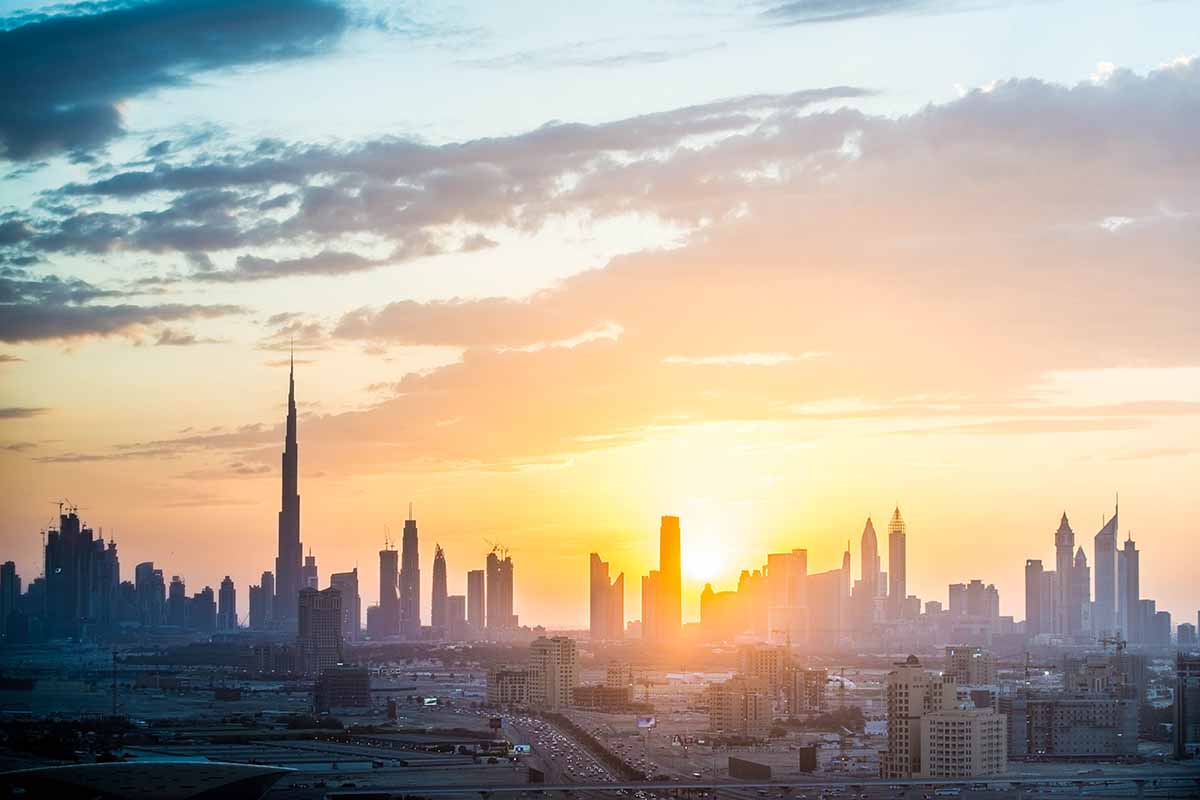
Transport and communications
Public transport
It is convenient to get around in Dubai thanks to its developed network of public transportation. There is a metro with the fares from $0.7 to $2.2 depending on the distance and class of service. You can also move by bus. The monthly cost of the pass is $70.
Personal transport
The cost of gasoline in Dubai is only $0.6 per liter. However, the fuel consumption may be higher because of the air conditioning systems and long traffic jams. Plus, there is a toll road system in Dubai, with each passage costing drivers from $5.5 to $11. The fine for speeding is $60.
Taxi
Passengers in Dubai pay for the taxi delivery from $1.5 to $2 and $0.5 for every kilometer of a ride, plus $5 for the time of waiting. The client also pays an extra $8.2 for 60 minutes in a traffic jam. To travel from the city center to the airport, you will pay about $10 - $20.
Mobile phone network
There are two major network operators; Du and Etisalat. Du sells a SIM card for $40, while Etisalat offers it for $15. A minute of an outgoing call within the country costs $0.2. For outgoing calls abroad, it is $1. A passport is required to buy a local SIM card. To top up, you need to buy a payment card.
Internet connection is paid per second. For an hour of using the Internet, you will pay about $2.7. The good news is that there are many free Wi-Fi points in the city that you can connect to.
Healthcare
The healthcare system in Dubai is at a high level. Since January 2014, health insurance has become compulsory for all residents. The insurance certificate is provided by the employer, and the coverage is possible to be expanded. The basic plan costs $170 per year. The advantage of this approach is that it is accessible to people with incomes below $1,100. The amount of insurance coverage is $41,000. However, it should be understood that only 20% of the medical service price can be covered by the insurance certificate per each medical appointment.
We’ll help you buy the best home in Dubai
Inexpensive real estate options in Dubai straight from top developers is available on our website. Reach out to our specialists directly by phone or leave a request to get comprehensive support in your home search. We will provide an integrated approach in searching and buying real estate in Dubai, as well as take care of the transparency of the transaction.

